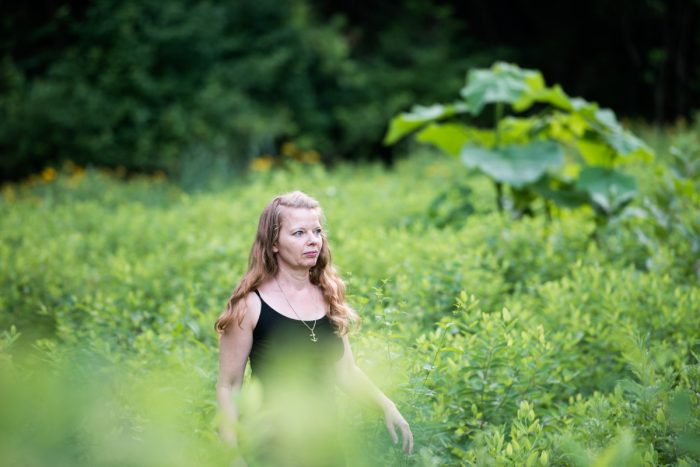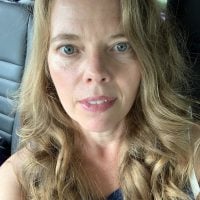I survived a heroin addiction—I am not unique.
Heroin brought me to my knees, but quitting wasn’t the only thing I needed.
I justified my lifelong use and abuse of drugs with self-made stories of uniqueness, specialness.
These stories were the framework upon which my entitlement and self-pity took hold, building a fortress of self-centered fear that kept me locked inside my own distorted thinking and self-sabotaging behavior. All the drugs and alcohol, including opiates and heroin, were the nuts and bolts in my inhuman/lifeless/destitute self-made prison.
Removing the drugs did not have an immediate effect; my way of thinking and living needed to be fully dismantled, sorted for salvageable parts, and rebuilt on a solid foundation of love and gratitude.
There are countless theories and speculations on what makes an addict, what addiction is, and how we can recover. I only have my own experience to share, which includes the fact that it was through identification with others’ feelings, thoughts, and experiences that led me out of the despair of addiction and into a life worth living.
I know now that my addiction began the first time I chose to avoid a feeling I didn’t want to experience by running away from the truth of it and covering it with a behavior that gave me instant gratification. I was around 5 years old and discovered masturbation after feeling rejected by a loved one. I didn’t turn into a heroin addict in that moment, but I started a pattern of avoidance and grasping that would continue to include any behavior that worked in the moment until I found the right drug.
The drugs worked for almost 20 years as a tool to aid self-deception and self-avoidance. I was suffering from a spiritual malady that had taken root in my mind. I could not think my way out because it was precisely my distorted thinking that perpetuated my addiction.
I needed to reach the spiritual bottom of utter desperation in order to break free of the self-made prison. I had overdosed, been arrested, lived in squalor, betrayed my own sense of morality; none of those things altered my course or broke my mind from it’s perpetual pattern of grasping for a fix.
There is no magical or scientific formula for breaking the grip of addiction. I believe that the moment that an addict surrenders is direct contact with the mysterious force of our creation. It is truly a miraculous meeting of universal conspiring, and a moment of willingness by the addict occurring at precisely the right time to create a spark of transformation. This is how it happened for me.
The first day that I surrendered, let go of trying to fix my predicament with my own thinking, was not much different than the last few years of my addiction. I was in a detox for the second time in six months, and desperately opened a book about recovery. I read something in that book that I had seen and heard many times before, but in that moment the truth sunk in—that I would never be able to think my way out of this dilemma.
I accepted that something beyond my control had taken over my mind, disturbing my emotions and corrupting my spirit. I knew that if I kept using I would die, and I was shocked to find that I wanted to live. I also knew that there must be something even more powerful than this thing that had taken over me. I believed that power to be recovery, as presented in the 12 steps, and in that moment, surrendered for the first time to a spiritual way of life.
I completed my detox and have not had a drug or drink since then, over 17 years ago. This miracle of willingness and clarity were given to me by God. I had nothing to do with that moment of conspiring events that led to my initial surrender in the last detox, other than my misguided life choices.
Just as I did not become an addict overnight, I was not suddenly “cured” by a moment of clarity. I didn’t just surrender in a moment and become a different person. That miraculous moment opened a door to the possibility of choosing not to use. Addiction is not the drugs I used, the compulsive sex-seeking, the mindless eating, or any other behavior; addiction is the self-centered fear of self that drives me to avoid my own thoughts and feelings at any cost.
Addiction is a highly focused headlong, obstinate race to self-destruction like a dog chasing its tail, or the snake consuming itself. This obsessive consumption fractured my personality and my mind into a thousand pieces.
Recovery began with putting the drugs down, but abstinence is not wholeness. Abstinence paved the way for the honest self-reflection necessary for recovery. Each time I faced a fissure in my personality, it was manifested in a behavior (obsession, compulsion, and impulsive behavior). The healing and integration of the cracks in my mind through perseverance, courage, honesty, humility, and faith in the force of life—Aliveness itself.
The initial facing of what my life had become, at almost 30 years old, was the hardest move—by far. I was embarrassed and ashamed to see that I was not who I thought I was. I could no longer blame my parents, the perpetrators of my trauma, or society for my own lack of responsibility for myself.
I had been seeking ways to run away from myself since I was 5 years old, and now, 25 years later, was faced with the bitter reality that if I wanted to feed the tiny flame of a desire to live that was inside of me, I was going to have to face my self and own all of my choices.
What I did do was take hold of that willingness, and I rode it right into perseverance and diligence with vigilance. Those early days of recovery were long and hard—every awkward, stiff moment grinding and crunching through the foggy brokenness of my body, mind, and spirit. I often told people that I felt like the tin man in the Wizard of Oz when he ran out of oil.
I had a sense of the possibility of my strength and durability, and I knew my heart was in there somewhere, but I had lost my ability to effectively move through life. I needed the help of others—asking reluctantly through clenched teeth, “Help me,” and allowing them to show me the way.
I diligently continued to practice spiritual principles as a way of life, dedicated to “driving all blame into one,” and to relearning a better way to live.
Eventually, I got my rhythm and fluidity back. These days, I love my life. I still see the ways that I grasp for ways to avoid an uncomfortable inner reality, and sometimes those behaviors last a few months or weeks, but rarely years. The evolution of spiritual living is gradual, unfolding, and folding over itself at an organic pace that grows more subtle but no less spectacular.
This year, this quarantine, this election has been an opportunity to see where I nurture myself, where I abuse myself, and where I run away from myself. I noticed which restrictions were hard, and which were easy.
The hardest part has been the grief and the rage—normal reactions to loss, injustice, and abuse. I would prefer not to experience these things; my mind tells me I’ve experienced enough loss, pain, and trauma—I should not have to endure another moment. This is the voice of entitlement, and it is a lie.
Cultivation of humility and compassion reminds me that I am not exempt from being a person and experiencing life in all of it’s ugliness, messiness, and glory.
I’ve eaten a lot of ice cream, watched a lot of TV, neglected personal hygiene, and yelled at my son, the same as everyone else. I’ve worried and cried and screamed and consumed an obscene amount of “news.”
I trudge on through this year, just as I did those first few years in recovery, but this year I don’t suffer from a fractured mind or corrupted spirit. I am dedicated to my daily practices of meditation, I care for myself and my son with reverence for our aliveness, and I seek to alleviate the suffering of others in any way that is available to me.
Being dedicated to a spiritual way of life doesn’t exempt me from pain, confusion, or mindlessness; it gives me a sense of purpose and a way to continually move toward living as the person I was born to be, serving the highest good of this life and this world.
~












Read 4 comments and reply